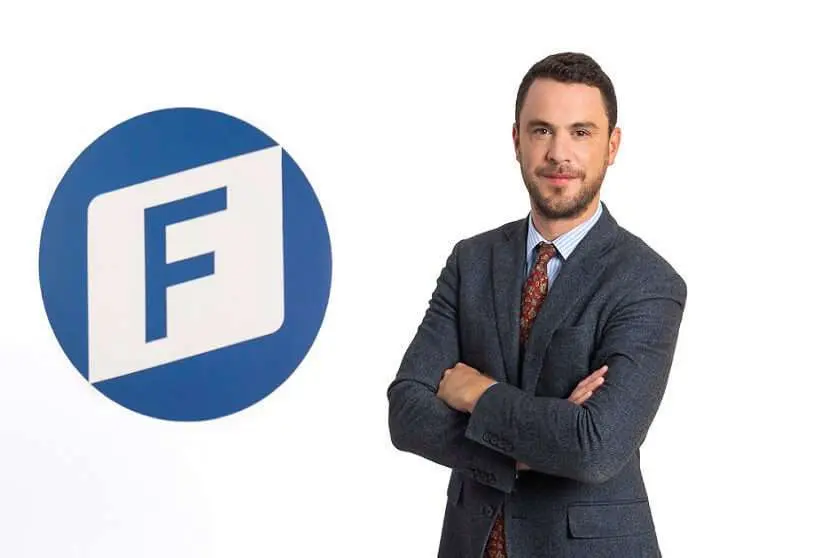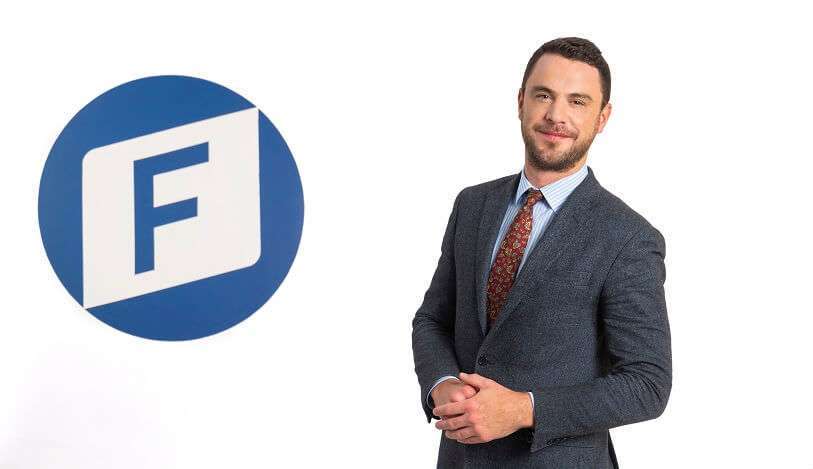David Henneberger: “La coalición actual en Alemania está en una crisis continua, pero estamos aprendiendo de los errores del pasado”

In the latest edition of "De Cara al mundo", Atalayar's programme on Onda Madrid, we had the intervention of David Henneberger, director of the Friedrich Naumann Foundation, who spoke about the current situation in Europe, and in Germany in particular, after the energy crisis unleashed by the Russian invasion of Ukraine. The director of the Naumann Foundation also explained the Foundation's new project with the documentary film Voices in Movement, a work on immigration in the Mediterranean.
The German Liberals in the tripartite government with the Social Democrats and Greens are facing a serious test: the severe crisis caused by the Russian invasion of Ukraine.
Yes, when we first formed this government at the end of last year no one could have imagined what would happen in February with the Russian invasion of Ukraine. The current coalition is in a continuing crisis and the challenges are gigantic.
Angela Merkel has declared in the last few hours that Putin's threats must be taken into account. Angela Merkel now has a lot of explaining to do for decisions taken during her government, above all to close nuclear power stations and to leave Germany in the hands of Russian gas.
Absolutely. We are trying to correct the mistakes of the past. One of them is the decision to close the nuclear power plants, and the other is independence from Russian energy. For decades we have been in a situation of dependence, which would not be a good thing in democracies, because we have to diversify energy supplies.
Are the Germans prepared to be cold this winter, or even to close factories if there is not enough gas because of the Russian gas cut-off?
That is the big question. It is a question we all have to ask ourselves, although it is obviously colder and more urgent in Germany. How much are we prepared to pay for freedom and democracy? We see that in the east of the country, because of its communist history, they are closer to certain Russian elements or Russian influence, something that could be seen in the demonstrations against sanctions. Italy is another case, we have to watch very carefully how the population and private companies react to price increases.
Personally I fear that we will reach a point where consumers and private enterprise will have such serious problems that a recession could occur. In Germany there is almost certainly going to be one.
The unity of Europeans is essential and Germany's role in leading that unity is key.
Of course, if we are looking for something positive in this situation, that is European unity. The unity not only of Europe but also of NATO is impressive, although no one would have imagined it before. Now it is a question of consolidating and maintaining it. Again, there is the issue of Italy, which is generating a lot of uncertainty with the results of last Sunday, but I don't see us allowing ourselves to be divided in the face of that situation.
Your work here in Madrid at the Naumann Foundation, which focuses mainly on the Mediterranean, wanted to devote special attention to a documentary: Voices in Movement, a work on immigration that you have produced. A call for equality, isn't it?
Yes, not in the sense of equality of results, but equality of opportunity, something we liberals are in favour of. It is everyone's responsibility to take advantage of those opportunities, but we need a greater focus on education, on access to the labour market, access to health care, access to starting a business, and that is what we are looking for with this documentary. The face of immigration is sometimes very different from what the media show us on a daily basis: there are integration problems or border protection issues, obviously, but it is also true that the rate of immigrants who seek to start their own business and not depend on the state with for example social transfers is higher than in the native population in most European countries. This is the case in Germany, for example.
In this documentary there are faces of young migrants who are learning, who are launching social projects and who at the end of the day are contributing something positive to Spanish society, in this case Barcelona.
We are very proud of this documentary because it also opens doors for the migrant community, because there is no other way: we have to live together. In Spain and in many Western countries we agree that we need immigration if we want to maintain pensions or if we want to maintain economic growth; in the long term we are short of people.

A fact from this documentary. Since 2016, the migrant population has accounted for 70% of the new workforce in the Spanish labour market. We must always look at the glass half full and not half empty, because the stigma that is often applied to immigration by the media is always negative, when what the migrant population is looking for is a job, a life with dignity, they are contributing to the Social Security system, which means that they are also financing the services they have with their contributions. I think this is an important vision in this documentary by Voices in Movement.
Absolutely. From a liberal perspective it is key to offer opportunities, both for immigrants and for Spaniards themselves. If for me, as a German, it is difficult to start a business in Germany, can you imagine what it is like for an immigrant? So it's a bit unfair to blame migrants who sometimes can't work or start a business because it's too complicated for them. So that is the approach we should have in public policies and regulations, to facilitate the process.
Where can you watch this documentary?
It can be seen on our YouTube channel, which is md-go.com.
Finally, how is the Mediterranean being affected in terms of the Foundation's objectives? The countries bordering North Africa were already emerging from the crisis caused by the pandemic, now there is the Russian invasion of Ukraine with the energy and food crisis. These countries are suffering the most and need Europe's attention.
Yes, absolutely. The situation in North Africa is complicated. However, already during the Covid crisis we have seen some positive developments, with what is in newsharing. European companies looking for suppliers in the Maghreb to replace suppliers in China, for example. Now the issue of clean hydrogen is gaining a lot more momentum again. We are again talking about new agreements between Africa and Europe.
Spain and Germany are negotiating, despite the challenges posed by France, new energy connections between the two countries. We see positive developments in spite of the difficulties. We also see the rapprochement of Spain and Germany with Morocco, which also has to do with the geopolitical situation. There are many shadows, but there are more rapprochements in certain sectors.
And the terrorist threat in the Sahel, which is trying to destabilise this whole region in what would be a humanitarian, migratory, political, security, etc. catastrophe. NATO has now turned its Strategic Concept towards this area because the threat is serious.
Absolutely. I think the strategy that Putin has developed in Syria is the strategy that he has developed in countries on the African continent, in the Sahel and also in East Africa. We have to be very careful. NATO has not traditionally played this role, and it will be difficult for it to accept this and develop military strategies. We in the European Union also have to define a common foreign policy because we often lack a common goal, not least because of the history of European countries with African countries. But I think that stopping Putin and Russia's influence is an excellent opportunity to work together, because we have the same goal.









